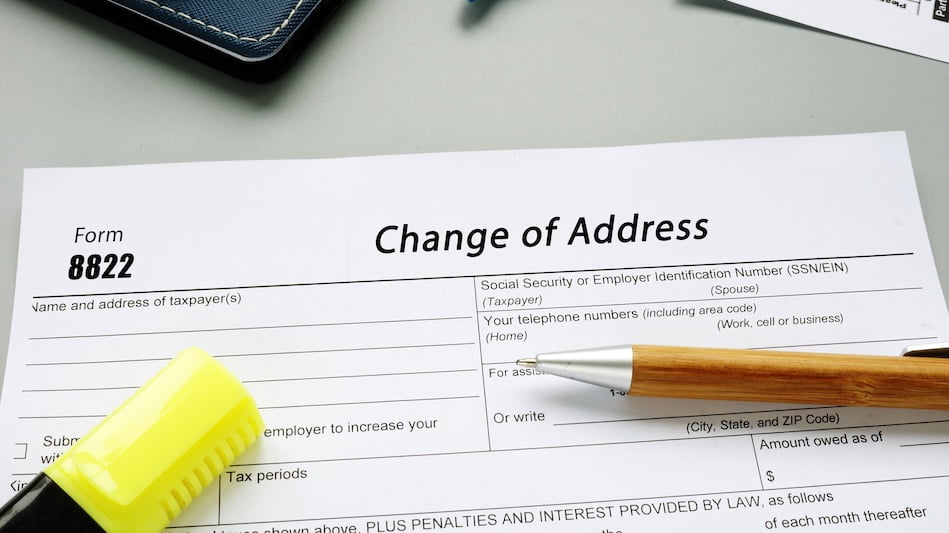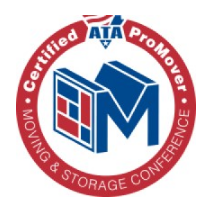Address Change Guide: Where & How to Update Your Address When Moving

Moving to a new home is an exciting adventure, but it also comes with a long to-do list. One crucial task that often gets overlooked is updating your address with various organizations and service providers.
Failing to change your address can lead to missed bills, lost mail, and even legal or financial consequences. From government agencies to utility companies, there are numerous places you’ll need to notify about your move.
The process can seem overwhelming, especially if you’re already juggling the stress of packing and coordinating your relocation. But don’t worry – we’ve got you covered.
This guide will walk you through the key places to change your address when you move. It covers everything from the United States Postal Service to your favorite streaming platforms, ensuring a smooth transition to your new home.
Government Agencies To Notify When You Move
Notifying government agencies of your new address when you move is crucial to ensure uninterrupted services, benefits, and legal compliance. Here are the key government agencies you need to inform about your relocation:
- United States Postal Service (USPS)
- Internal Revenue Service (IRS)
- Department of Motor Vehicles (DMV)
- Social Security Administration
- Voter registration offices
United States Postal Service (USPS)
The USPS offers two convenient methods for changing your address: online and in-person at your local post office.
Online Change Of Address Process
To change your address online, visit the official USPS website (USPS.com/move) and fill out the change of address form. Provide your old and new addresses, the effective date, and whether the move is permanent or temporary.
A small fee of $1.10 is charged to verify your identity and prevent fraud.
In-Person Change Of Address At Your Local Post Office
To change your address in person, visit your local post office and request a Mover’s Guide packet. Fill out the included change of address form and submit it to the postal clerk.
There is no fee for changing your address in person.
Internal Revenue Service (IRS)
Updating your address with the IRS ensures that you receive important tax documents and correspondence in a timely manner.
Updating Your Address By Phone, Letter, Or Form
Notify the IRS of your address change by calling their customer service line, sending a letter with your full name, old and new addresses, and Social Security number, or filling out and mailing Form 8822 (Change of Address).
Changing Your Address When Filing Your Taxes
If you’re filing your tax return soon after moving, update your address directly on your tax return. Enter your new address in the appropriate fields when preparing your return.
Department Of Motor Vehicles (DMV)
Each state has its own DMV requirements for updating your address, but generally, you’ll need to change your address on your driver’s license, ID card, vehicle registration, and title.
Updating Your Driver’s License And ID Card
Visit your local DMV office or your state’s DMV website to learn about the specific process for updating your driver’s license and ID card. Most states require you to update your address within 30 days of moving.
Changing The Address On Your Vehicle Registration And Title
Contact your state’s DMV or visit their website for instructions on updating your vehicle registration and title. You may need to provide proof of your new address, such as a utility bill or lease agreement.
Social Security Administration
If you receive Social Security or Medicare benefits, it’s essential to keep your address current with the Social Security Administration.
Ensuring Uninterrupted Social Security And Medicare Benefits
Change your address with the Social Security Administration by creating an online account at ssa.gov, calling their customer service line, or visiting your local Social Security office.
Preventing Fraud By Keeping Your Address Current
Keeping your address up to date with the Social Security Administration helps prevent fraud and identity theft. It ensures that your sensitive information and benefits are being sent to the correct address.
Voter Registration
To participate in local, state, and federal elections, you’ll need to update your voter registration with your new address.
Registering To Vote At Your New Address
Visit your state’s election office website or contact your local election officials to learn how to register to vote at your new address. Many states offer online voter registration, while others require you to submit a paper form.
Deadlines And Requirements For Updating Voter Registration
Be aware of your state’s deadlines and requirements for updating your voter registration. Some states have strict cutoff dates for registering or changing your address before an election, so update your information as soon as possible after moving.
Financial Institutions And Service Providers To Inform About Your Move
Moving to a new address means updating your information with various financial institutions and service providers. Here’s how to notify banks, credit card companies, insurance providers, and loan providers about your move to ensure uninterrupted service and timely correspondence.
Banks And Credit Card Companies
Informing your bank and credit card issuers about your new address is crucial for receiving statements, cards, and other important documents. Take the following steps to update your address:
Notifying Your Bank Of Your New Address
Contact your bank through their customer service line, online banking portal, or by visiting a local branch. Provide your new address and ask them to update your records across all your accounts, including checking, savings, and any loans or investments.
Updating Your Address With Credit Card Issuers
Reach out to your credit card issuers using their customer service phone number, online account management tools, or by sending a secure message through their website. Update your address for each credit card you hold to ensure that you receive statements and replacement cards at your new residence.
Insurance Providers
Updating your address with insurance providers is essential for maintaining coverage and receiving important policy documents. Here’s what you need to do:
Informing Your Home, Rental, And Car Insurance Companies
Contact your home, rental, and car insurance companies to update your address. This step is particularly important for home and rental insurance, as your coverage and premiums may change based on your new location.
Provide your new address and the effective date of your move.
Updating Your Address For Health, Dental, And Life Insurance Policies
Notify your health, dental, and life insurance providers about your change of address. This ensures that you receive policy updates, benefit information, and any necessary insurance cards at your new home.
You can typically update your address through the provider’s website, customer service line, or by mail.
Loan Providers
If you have outstanding loans, it’s crucial to inform your lenders about your new address to avoid missed payments and potential credit issues. Follow these steps:
Notifying Mortgage Lenders Of Your Move
Contact your mortgage lender to update your address. This step is especially important if you have your mortgage payments set up through the mail.
Notify your lender in writing or by phone, and provide your loan account number, old and new addresses, and the effective date of your move.
Informing Student Loan Servicers And Other Loan Providers
Update your address with your student loan servicers and any other loan providers, such as personal loan lenders or auto financing companies. You can usually do this through the lender’s website, customer service line, or by sending a written request.
Be sure to include your account number, old and new addresses, and the date of your move.
Utilities And Services To Transfer Or Update When Relocating
Moving to a new home means transferring or updating your utilities and services. Let’s go over the steps you need to take for your gas, electric, water, sewer, phone, cable, and internet services.
Gas And Electric Companies
Managing your gas and electric services during a move is crucial for avoiding service interruptions and unexpected bills. Here’s what you need to do:
Scheduling Utility Shutoff At Your Old Address
Contact your current gas and electric providers to schedule a shutoff date for your old address. Provide them with your move-out date, new address for the final bill, and request a meter reading on your last day to ensure accurate billing.
Arranging For Service Activation At Your New Home
Research gas and electric providers servicing your new address and choose the one that best suits your needs. Contact them to schedule service activation for your move-in date, and be prepared to provide your new address, move-in date, and payment information.
Water And Sewer Services
Transferring your water and sewer services is an important step in ensuring a comfortable transition to your new home. Follow these steps:
Closing Your Account At Your Previous Residence
Notify your current water and sewer provider about your move and request a shutoff date. Provide your forwarding address for the final bill and arrange for a final meter reading to ensure you only pay for the services you used.
Setting Up Water And Sewer Services At Your New Address
Contact the water and sewer provider for your new address to set up services. You may need to provide proof of residency, such as a lease agreement or closing documents, and schedule your service activation for your move-in date to avoid any interruptions.
Phone, Cable, And Internet Providers
Updating your phone, cable, and internet services is key to staying connected in your new home. Here’s what you should do:
Transferring Or Canceling Your Current Services
Contact your current phone, cable, and internet providers to inform them about your move. Discuss your options for transferring or canceling your services, keeping in mind that if you’re moving to an area not serviced by your current provider, you may need to cancel and find new providers.
Establishing New Service Contracts At Your New Location
Research phone, cable, and internet providers available at your new address. Compare plans, prices, and promotions to find the best fit for your needs, then contact your chosen provider to set up new service contracts and schedule installation for your move-in date, ensuring you have your new address and payment information ready.
Professional Services And Personal Contacts To Notify About Your Relocation
When you’re moving, it’s important to let your professional contacts and personal connections know about your new address. Here’s a guide to help you notify your employer, colleagues, healthcare providers, veterinarian, pet services, friends, and family.
Employer And Colleagues
Keeping your employer and colleagues in the loop about your new address is key for maintaining professional communication and ensuring a smooth transition.
Informing Your Employer Of Your New Address For Payroll And Benefits
Let your HR department or supervisor know about your address change, and give them your new address and the date it takes effect. This will ensure that your payroll, benefits, and tax info are updated, and don’t forget to update your emergency contact info too.
Updating Your Contact Information With Colleagues And Professional Networks
Update your contact info in your company’s internal directory or intranet. Let your colleagues, clients, and professional networks know about your new address via email or social media like LinkedIn, so you can stay in touch and not miss any opportunities.
Healthcare Providers
Letting your healthcare providers know about your move is crucial for maintaining continuity of care and keeping your medical records current.
Notifying Your Doctors, Dentists, And Specialists Of Your Move
Reach out to your primary care doctor, dentist, and any specialists you see regularly to let them know about your relocation. If you’re moving within the same city, update your address with your current providers so you keep getting appointment reminders and billing statements.
Transferring Prescriptions To A Pharmacy Near Your New Home
If you have any active prescriptions, contact your current pharmacy to transfer them to a pharmacy near your new place. You can also ask your doctor to send new prescriptions to a pharmacy in your new location.
Veterinarian And Pet Services
If you’ve got pets, it’s essential to update your address with your vet and any pet service providers to ensure your furry friends get the care they need.
Informing Your Veterinarian Of Your New Address
Let your current vet know about your move and give them your new address. If you’re moving to a new city, ask for a copy of your pet’s medical records to give to your new vet, so they can provide the best possible care for your pet.
Updating Your Contact Information With Pet Sitters, Groomers, And Boarders
If you use pet sitters, groomers, or boarding services, make sure to update your contact info with them. That way, they can reach you in case of emergencies and send you any necessary updates or reminders.
Friends, Family, And Personal Contacts
Don’t forget to share your new address with your friends, family, and personal contacts so you can stay connected and avoid missing important life events.
Sharing Your New Address With Loved Ones
Let your close friends and family know about your new address through personal conversations, phone calls, or emails. You could even throw a housewarming party to celebrate your new home and share your address with your loved ones.
Sending Out Change Of Address Notifications
For a wider circle of friends and acquaintances, think about sending out change of address notifications. You can create personalized cards or use online services to design and send digital announcements, including your new address, phone number, and any other important contact info so everyone can reach you at your new place.
Online Services And Subscriptions To Update With Your New Location
Moving to a new home involves updating your address with various online platforms. This ensures uninterrupted access, accurate billing, and seamless delivery of products and services.
Retail Websites And Online Shopping Accounts
Updating your address on retail websites and online shopping accounts is essential for ensuring that your orders are delivered to the correct location and that your billing information is accurate.
Changing Your Address On Frequently Used E-Commerce Platforms
Make a list of the e-commerce platforms you regularly use, such as Amazon, eBay, or Etsy. Log into each account and update your shipping and billing addresses in the account settings or profile section.
This will guarantee that your future orders are sent to your new home without any delays or complications.
Updating Your Shipping And Billing Information For Seamless Deliveries
Review your saved shipping and billing information on payment platforms like PayPal or Stripe. Ensuring that your payment details are up to date will help prevent any issues with online transactions and subscriptions.
Streaming Services And Digital Subscriptions
Streaming services and digital subscriptions often rely on your location for content availability and billing purposes. Updating your address with these providers will help you maintain access to your favorite content and avoid any billing discrepancies.
Modifying Your Address For Accurate Billing And Location-Based Services
Update your address with streaming services like Netflix, Hulu, or Spotify to ensure that your billing information is correct and that you have access to location-specific content. Some services may require you to verify your new location or update your payment method after changing your address.
Ensuring Uninterrupted Access To Your Favorite Content
For digital subscriptions like online newspapers, magazines, or educational platforms, update your address to maintain uninterrupted access to your favorite content. Some subscriptions may be tied to your location, and updating your address will help you avoid any service disruptions or access issues.
Membership And Loyalty Programs
Membership and loyalty programs often send exclusive offers, rewards, and promotions to your registered address. Updating your contact information with these programs will ensure that you continue to receive these benefits at your new location.
Updating Your Contact Information For Rewards And Promotions
Review your memberships with retail clubs, frequent flyer programs, or hotel loyalty programs. Log into each account and update your mailing address to ensure that you receive your rewards, vouchers, and promotional offers at your new home.
Maintaining Accurate Records For Clubs, Gyms, And Other Memberships
If you belong to any clubs, gyms, or other membership-based organizations, inform them about your address change. This will help maintain accurate records and ensure that you receive any important communications or billing statements at your new address.
Frequently Asked Questions
- How far in advance should I change my address when moving?
For a smooth transition, it’s wise to notify the USPS of your address change at least two weeks before your move. This ensures your mail will be forwarded to your new residence starting on your specified date.
- Can I change my address online for all services and institutions?
While many providers offer online address updates, some may require you to change your information by phone, mail, or in person. Check with each provider to determine their preferred method.
- What happens if I forget to change my address with some providers?
Forgetting to update your address with certain providers can lead to service disruptions, missed bills, or lost mail. Keep a checklist of all the places you need to notify and systematically work through it to avoid missing any crucial updates.
- Is there a fee for changing my address with USPS?
Yes, the USPS charges a $1.10 fee for online address changes to verify your identity and prevent fraud. However, changing your address by mail or in person at the post office is free.
- How long does it take for my address change to take effect?
The time it takes for your address change to take effect varies by provider. For the USPS, your mail will start forwarding to your new address on the date you specify when submitting your request.
Conclusion
Moving to a new place means updating your address with a wide variety of organizations and companies. This is an important step to ensure your information is current and you continue receiving important communications. Once you’ve settled in, you’ll want to make sure all your contacts, from your bank to your doctor’s office, have your new address on file. This includes government agencies, banks, utility providers, and online services.
To make your move as smooth as possible, it’s important to be thorough and proactive about changing your address. Use the information provided as a checklist to ensure you don’t forget any important updates.
Taking the time to properly change your address will help you avoid stress and stay connected with the people and services that matter most in your life. It’s a crucial step in making your new place feel like home.
Related Articles
Moving Out Soon? Your Guide to Start Saving Today

Moving out is a thrilling milestone that brings both excitement and financial challenges. Proper preparation and strategic saving are crucial for a smooth transition to independent living, requiring more than just accumulating a lump sum. Beginning this process requires a thorough approach, from evaluating your current financial circumstances to preparing for lasting stability. By implementing […]
Read MoreFirst Time Moving Out? Your Essential Checklist & Guide

Stepping out on your own for the first time is a thrilling adventure that marks the beginning of true independence. It’s a journey filled with excitement, but it also comes with its fair share of challenges that require thoughtful preparation and planning. Moving from your family home to your own space involves more than just […]
Read More




